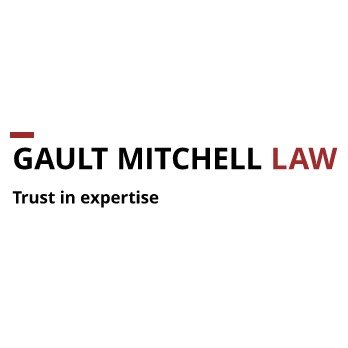Best Employment Benefits & Executive Compensation Lawyers in Wellington
Share your needs with us, get contacted by law firms.
Free. Takes 2 min.
List of the best lawyers in Wellington, New Zealand
About Employment Benefits & Executive Compensation Law in Wellington, New Zealand
Employment Benefits & Executive Compensation law in Wellington, New Zealand, deals with the legal aspects governing the remuneration packages provided to employees and executives. This includes salary, bonuses, stock options, pension schemes, health benefits, and other perks. The complexity of these arrangements often necessitates legal counsel, especially given the varied and detailed legislation that applies. In Wellington, as across New Zealand, the laws reflecting governmental policies toward fair remuneration practices are subject to regular reviews, aiming to promote equity and compliance between employers and employees.
Why You May Need a Lawyer
There are numerous situations where legal assistance may be necessary in the realm of Employment Benefits & Executive Compensation:
- Negotiating complex executive compensation packages or employment contracts.
- Understanding your rights and obligations under employment agreements.
- Resolving disputes concerning benefits like pensions, bonuses, or equity stakes.
- Ensuring compliance with employment laws and taxation regulations.
- Addressing discrimination or inequity issues in benefit distributions.
- Elaborating policies within an organization to properly address benefits and compensation.
Local Laws Overview
Wellington, as part of New Zealand, adheres to the nation’s labor laws, which are set to ensure fair work conditions and equitable compensation. Key aspects include:
- Employment Relations Act 2000: Governs the overall landscape of employer-employee relationships, focussing on collective bargaining rights, personal grievances, and collective agreements.
- The Minimum Wage Act 1983: Sets the minimum wage standards applicable across all sectors.
- Holidays Act 2003: Covers employees' entitlements to holidays and special leave.
- Taxation (Annual Rates for 2021-22, Feasibility Expenditure, and Remedial Matters) Act 2021: Provides guidance on tax implications of various compensation components.
- KiwiSaver Act 2006: Details regulations on employer contributions to New Zealand's retirement savings scheme.
Frequently Asked Questions
What constitutes a typical executive compensation package in Wellington?
A typical executive compensation package can include a base salary, performance bonuses, stock options, retirement contributions, and other perquisites such as health coverage or company cars.
Are bonuses mandatory under New Zealand law?
No, bonuses are usually subject to the terms set out in individual employment contracts or agreements.
How does KiwiSaver affect my retirement benefits?
KiwiSaver contributions are part of an employee's retirement savings, with both employers and employees contributing. This is in addition to any other retirement benefits negotiated.
Can executive compensation packages be renegotiated?
Yes, compensation packages can be renegotiated, typically prior to signing agreements or during reviews. Legal advice is recommended to ensure fairness and compliance.
Are there legal protections against discrimination in compensation?
Yes, under the Human Rights Act 1993 and other legislative measures, employees are protected against discrimination, ensuring equitable compensation practices.
What should I do if I’m not receiving my entitled benefits?
Seek legal advice to understand your rights and the appropriate steps for resolving any discrepancies. Document all communications and agreements related to your benefits.
How can tax implications affect my compensation package?
Different compensation elements may be taxed differently. It is essential to understand these aspects for maximized net earnings and compliance with tax laws.
What role does the Employment Relations Authority play?
The Employment Relations Authority assists in resolving employment disputes, verifying compliance with employment rights, and can intervene in disputes related to compensation and benefits.
How often can compensation packages be reviewed or updated?
This is typically determined by company policy or specific employment agreements, but reviews often occur annually or during significant role changes.
What is a restraint of trade clause, and how does it affect me?
These clauses limit your ability to work in certain fields or locations post-employment. Legal advice can help decipher their enforceability and negotiation.
Additional Resources
Here are several resources and organizations for further assistance:
- Employment New Zealand: Resource for understanding employment rights and obligations in New Zealand.
- KiwiSaver Scheme: Official government site for all KiwiSaver-related queries.
- IRD (Inland Revenue Department): Provides guidance on tax-related questions for employees and employers.
- Employment Relations Authority: A body dedicated to resolving employment disputes with an emphasis on fair remuneration.
Next Steps
If you require legal assistance, consider the following actions:
- Document all current employment contracts and compensation details.
- Consult with employment law specialists in Wellington to discuss your situation.
- Engage with alternative dispute resolution methods if conflicts arise that need mediation before litigation.
- Regularly review your compensation package with respect to changes in the law or personal circumstances.
Your legal needs are as individual as your career, so taking proactive steps to consult professionals can ensure you are properly protected and informed.
Lawzana helps you find the best lawyers and law firms in Wellington through a curated and pre-screened list of qualified legal professionals. Our platform offers rankings and detailed profiles of attorneys and law firms, allowing you to compare based on practice areas, including Employment Benefits & Executive Compensation, experience, and client feedback.
Each profile includes a description of the firm's areas of practice, client reviews, team members and partners, year of establishment, spoken languages, office locations, contact information, social media presence, and any published articles or resources. Most firms on our platform speak English and are experienced in both local and international legal matters.
Get a quote from top-rated law firms in Wellington, New Zealand — quickly, securely, and without unnecessary hassle.
Disclaimer:
The information provided on this page is for general informational purposes only and does not constitute legal advice. While we strive to ensure the accuracy and relevance of the content, legal information may change over time, and interpretations of the law can vary. You should always consult with a qualified legal professional for advice specific to your situation.
We disclaim all liability for actions taken or not taken based on the content of this page. If you believe any information is incorrect or outdated, please contact us, and we will review and update it where appropriate.

















